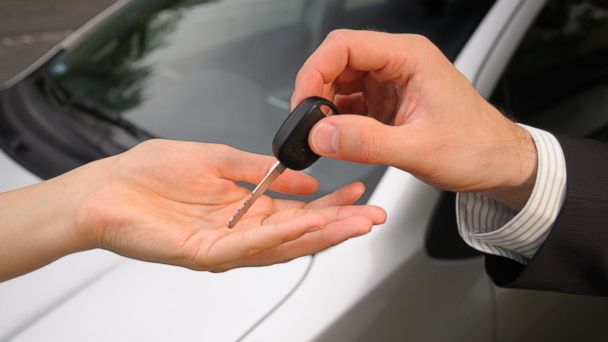 Natural disasters, terrorist attacks and plane crashes are all over the news, but for the majority of people, the chance of being directly affected by those tragedies is relatively low. On the other hand, most people are exposed to a more common risk every day: being in a car accident. Here are some of the most frequently asked questions about auto insurance.
Natural disasters, terrorist attacks and plane crashes are all over the news, but for the majority of people, the chance of being directly affected by those tragedies is relatively low. On the other hand, most people are exposed to a more common risk every day: being in a car accident. Here are some of the most frequently asked questions about auto insurance.What Is the Minimum Requirement for Auto Insurance?
Each state has its own minimum requirement. For example, California requires a minimum coverage of $15,000/$30,000/$5,000, which means $15,000 for injury
or death of one person per accident, $30,000 for injury or death of two or more people per accident, and $5,000 for any property damage per accident. You could find the minimum insurance requirement for your state at dmv.org.
If your car is financed, especially if it is leased, your lender will probably require higher insurance coverage to protect their interest in it. You should be able to easily find the specific requirement on your final contract. For example, for my leased 2015 Passat, Volkswagen Credit requires a minimum of $100,000/$300,000/$50,000, plus collision coverage and comprehensive coverage, with a deductible not exceeding $1,000. It is a huge difference compared to the state minimum requirement mentioned above.
Last but not the least, if you are trying to get an umbrella insurance policy, the insurance company may require you to have a certain amount of auto and homeowner's insurance coverage. In California, the minimum auto insurance coverage needed to qualify for a personal umbrella policy is usually $100,000/$300,000/$50,000 to $$250,000/$500,000/$100,000, depending on the company.
Am I Covered When I Drive Another Car or Someone Drives My Car?
In general, an auto insurance follows the car first and the insured second. For instance, if you have a car accident while driving your friend’s car with his or her permission and you are at fault, your friend’s auto insurance is the primary insurance and will cover any liability and damage first, then your auto insurance may pay a portion of the cost. Vice versa, if your friend got into an accident while driving your car with your consent, your insurance will be primary.
You are required by most insurance companies to add anyone who lives with you and has access to your car regularly as an insured on your policy. Some insurance companies may have specific limitations on covering people not listed on your policy. You should always read your policy or check with your insurance company directly.
Keep in mind, if someone drives your car with your permission and causes an accident, the accident will stay on your record and may increase your premium.
Does My Auto Insurance Cover a Rental Car?
Generally, the answer is yes, but it differs between insurance companies. If you have proper liability, collision and comprehensive coverage, you don’t need to worry about getting additional insurance from the rental car company. The only thing you should be aware of is your own insurance may not cover the “loss of use” or lost income of the rental car while it is being repaired.
Some credit cards offer extra insurance on top of your auto insurance. To determine exactly what is covered, double check with your insurance provider and credit card company before renting a car next time.
Does My Auto Insurance Cover My Personal Property or Pets?
We treat our pets as family members. However, from an insurance perspective, pets are considered personal property. Most auto policies will not cover damage to personal property, including pets, if you are at fault in the accident. The good news is your homeowner's or renter's insurance may help you recover some of the losses. (For more from this author, see: 4 Common Misconceptions About Homeowner's Insurance.)
Certain insurance companies offer additional insurance up to $2,000 as part of their collision or comprehensive coverage for your dogs or cats regardless of who was at fault.
Get the Right Coverage, Not the Cheapest
Some people don't think auto insurance is necessary and get the minimum coverage to save some money on the premium. Insurance is something you hope you will never use but are glad to have when you need it. When shopping for auto insurance, focus on getting the right coverage, not the cheapest coverage.
(For more from this author, see: Make the Right Choice: Buying or Leasing a Car.)
Disclosure: All written content in this article is for information purposes only. Opinions expressed herein are solely those of X and Y Advisors, Inc., unless otherwise specifically cited. Material presented is believed to be from reliable sources and no representations are made by our firm as to another parties’ informational accuracy or completeness. All information or ideas provided should be discussed in detail with an advisor, accountant or legal counsel prior to implementation.
Read more: 4 Frequently Asked Auto Insurance Questions | Investopedia https://www.investopedia.com/advisor-network/articles/4-frequently-asked-questions-auto-insurance/#ixzz5HQ7lFMt0
Follow us: Investopedia on Facebook
ำำำำ
ไม่มีความคิดเห็น:
แสดงความคิดเห็น